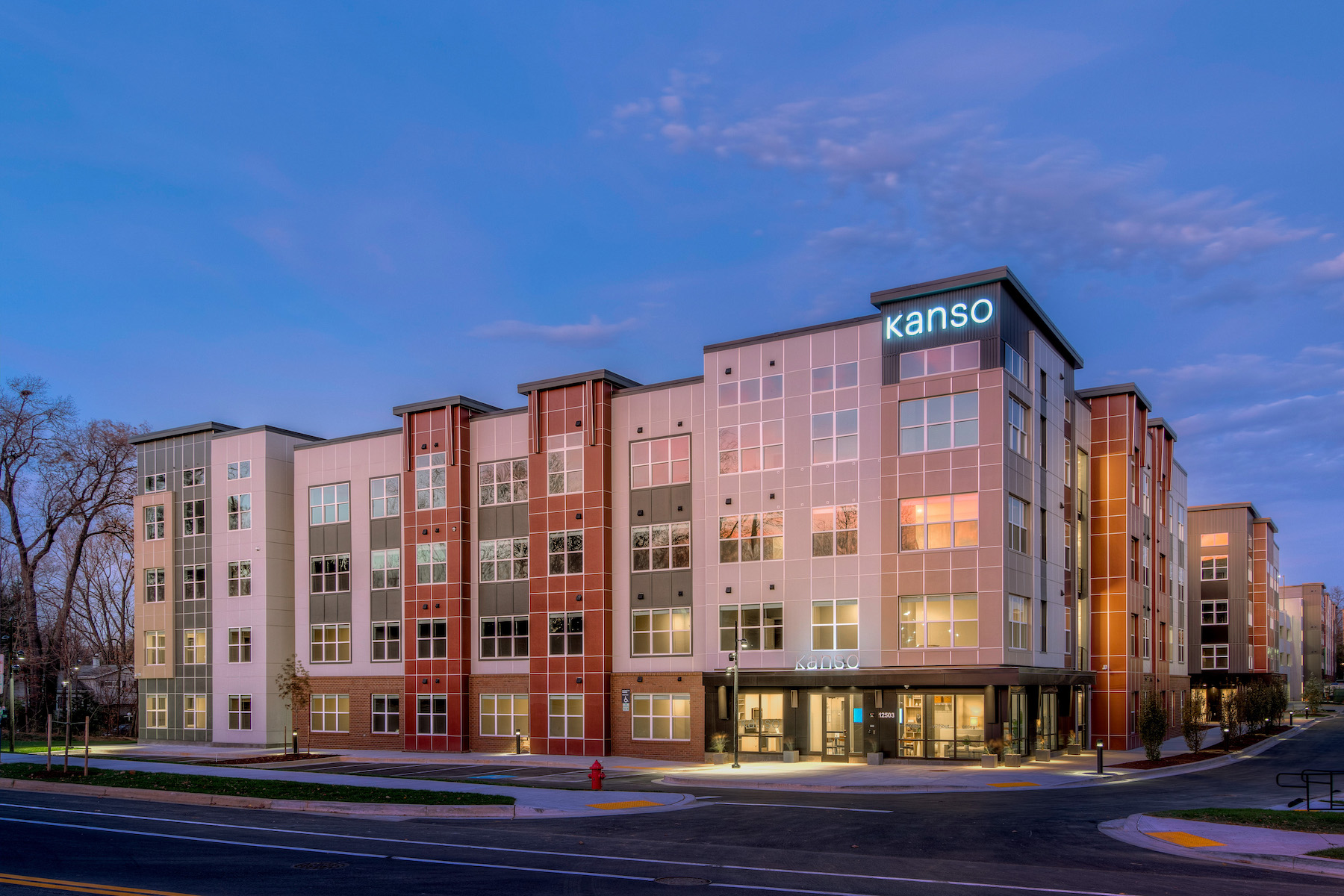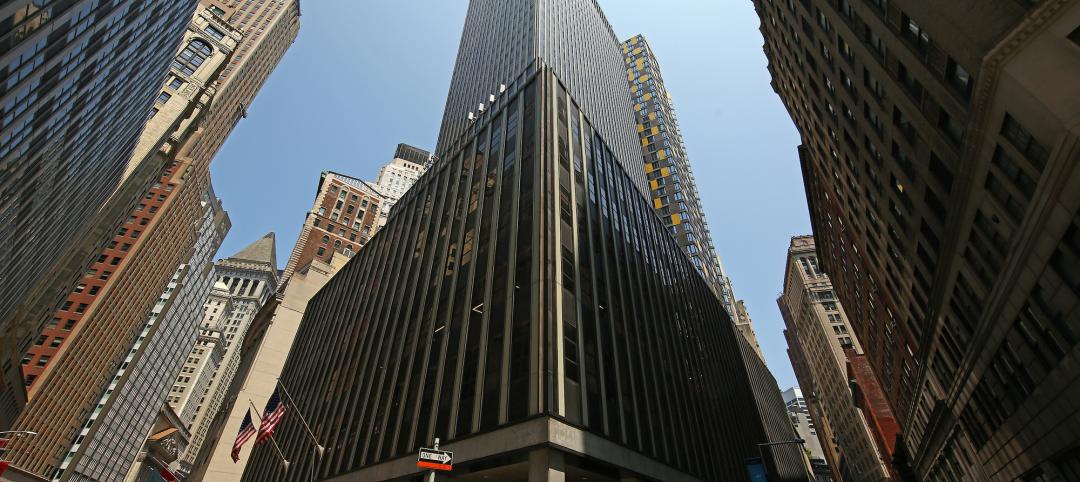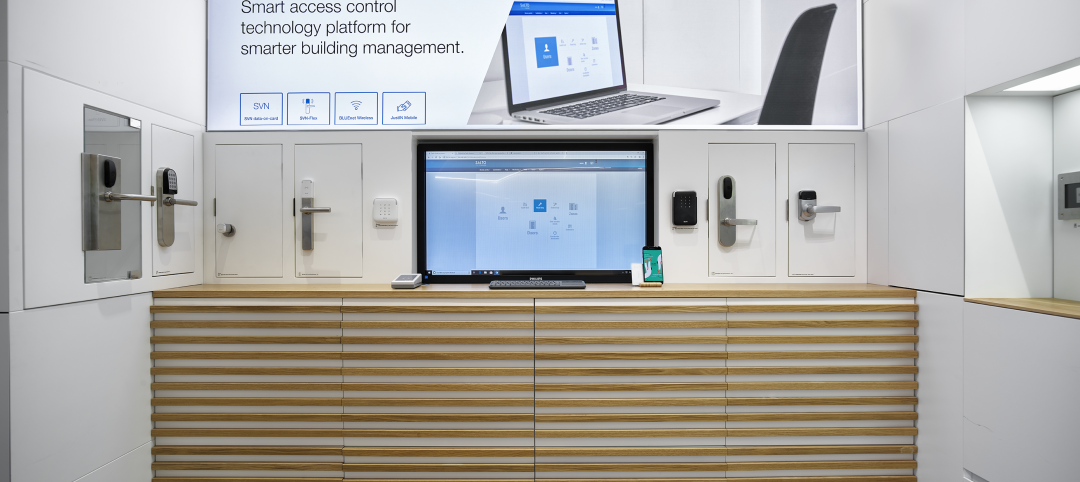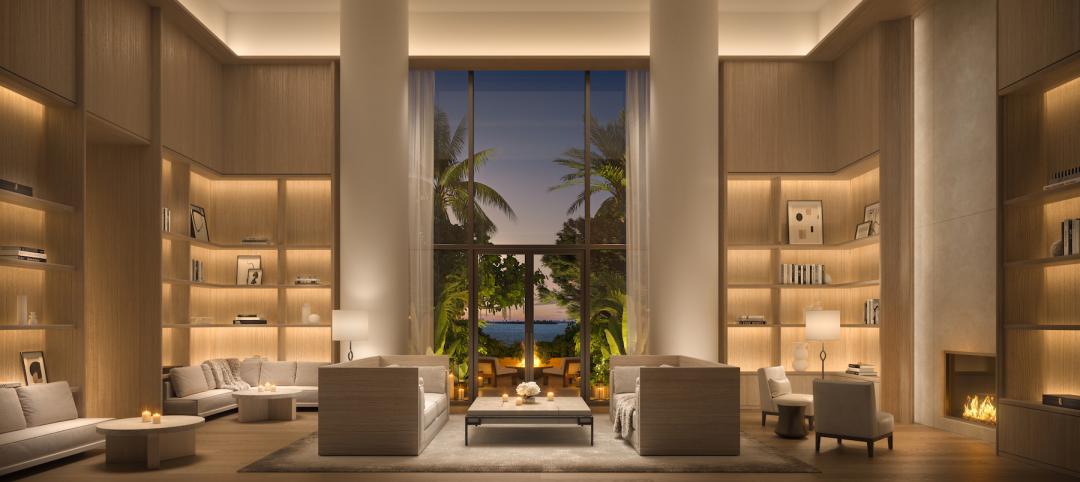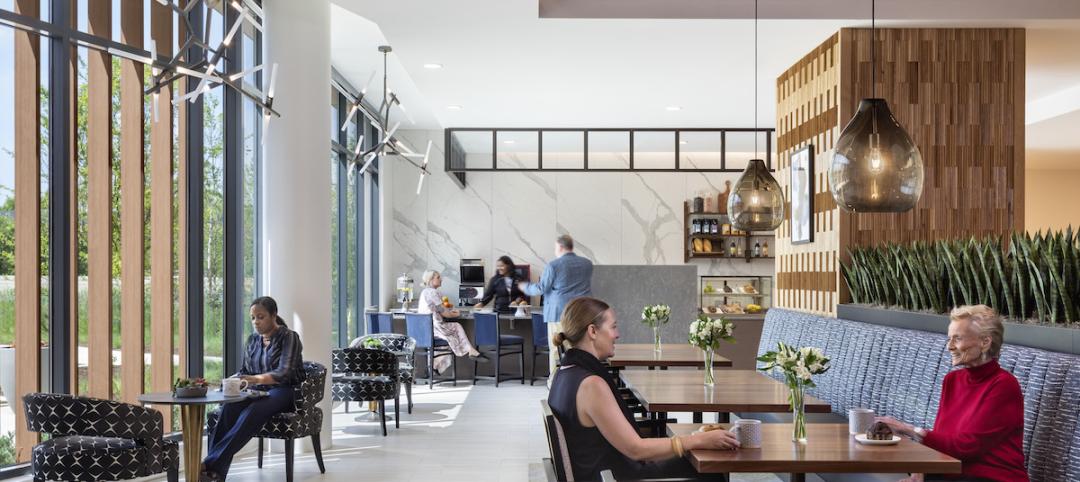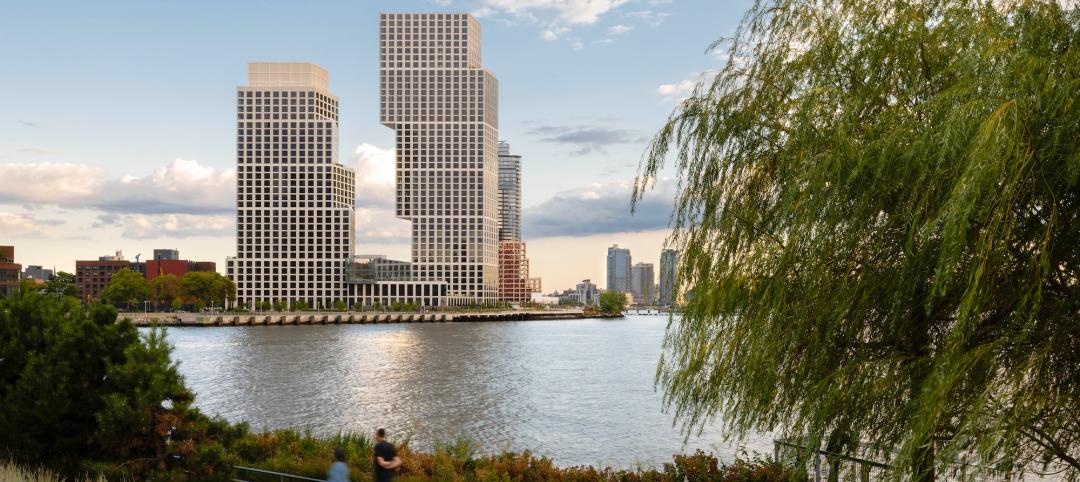Remote work is not only here to stay but is shaping the modern renter’s wants and needs while influencing design decisions and building plans across the industry.
New data from the 2022 National Multifamily Housing Council (NMHC)/Grace Hill Renter Preferences Survey Report, which features insights from more than 221,000 renters living in 4,564 communities across the U.S., shows that a rise in remote work was a driving force among renters who relocated during the pandemic. Of the 60 percent of survey respondents who moved during the past 18 months, 25 percent moved as a result of the shift to remote work.
Like many, renters are teleworking with higher frequency than ever before. Nationally, the share of respondents who are teleworking daily is roughly five times higher than it was two years ago. And many aren’t counting on that changing. Of those who currently telework (with any frequency), 64 percent anticipate working from home about the same amount over the next 12 months and 9 percent anticipate working from home more. In contrast, 27 percent said they anticipate working from home less over the coming year.
Curb-to-couch connectivity in multifamily housing
Renters have long demanded seamless connectivity, from curb to couch and everywhere in between, but this need has become critical as telecom and internet technology have become a lifeline to their livelihoods.
Respondents ranked reliable cell phone service as the No. 1 community amenity, with 86 percent of survey respondents indicating interest. Renters are even more serious about their internet connectivity in their units, with nine out of 10 respondents saying they were interested in or wouldn’t rent their home without it. An environment conducive to work also needs to be quiet and private, leading to strong interest in soundproof walls with 90 percent of renter respondents saying they are interested or won’t rent without this amenity.
As such, some communities are opting to offer high-speed, community-wide Wi-Fi as part of the properties’ amenity package. For example, AvalonBay Communities’ Kanso Twinbrook, in Rockville, Md., partners with WhiteSky to offer seamless, secure and instant high-speed Wi-Fi internet connectivity throughout the entire community. Residents can move in and log on—no equipment or installation appointments required.
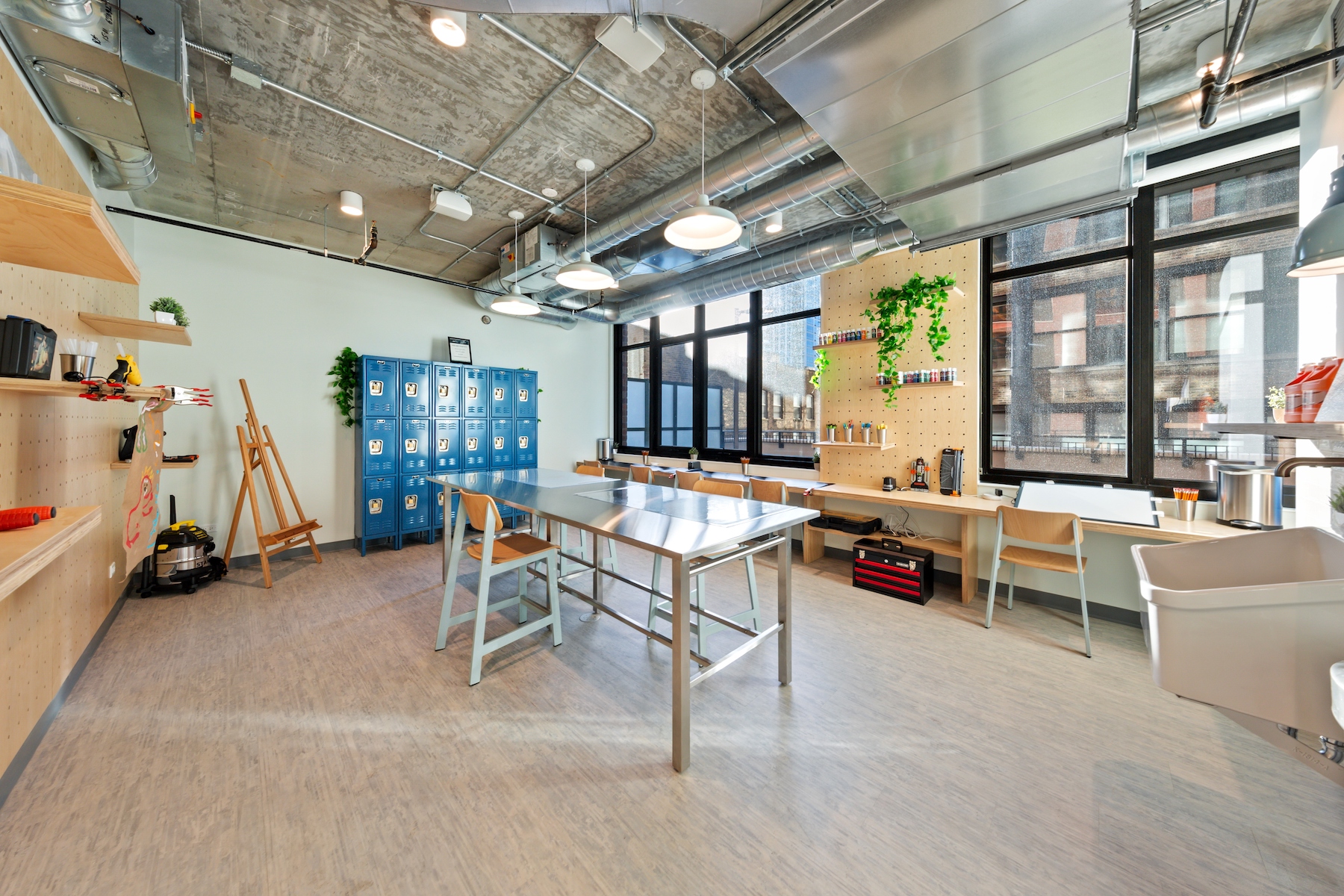
Home offices and shared meeting spaces have also become in-demand features. While 19 percent of renter respondents said they would consider using a co-working facility when teleworking, such as WeWork or SPACES, a greater share of respondents (35 percent) indicated interest in using a shared workspace at their communities.
Not only are these amenities sought after, but renters are willing to pay an additional monthly premium for them. Of those interested, the average survey respondent is willing to pay $47.93 more per month for high-speed internet, $42.78 for reliable cell phone service, and $46.21 for soundproof walls. And for a convenient onsite alternative to work from home, interested renters are willing to shell out $36.60 more on average for an on-site rentable co-working space.
Recognizing this, some developers are making significant investments in their co-working amenities by repositioning common areas as co-working space, adding charging and print stations and even introducing more specialized equipment. For example, AMLI 808 in Chicago offers downtown living with a plethora of work-from-home amenities, including an on-site podcast studio and a DIY studio for makers and builders.
Flexibility becomes a key feature in apartment design
With the lines blurred between work and home, renters are increasingly looking for flexibility in their homes to accommodate these shifting needs. Versatility rules as nearly two-thirds of survey respondents said that flexible space in their homes was either important or extremely important. Adaptable floorplans that can adjust to a variety of needs and options for furnished or unfurnished units are among the features these live-work-play from home renters desire.
As an example, AMLI 808 also features Ori studio suites. Choreographing movement into apartment homes, this modular furniture system creates a private bedroom, an open living room, work from home space, storage and more—all at the touch of a button.
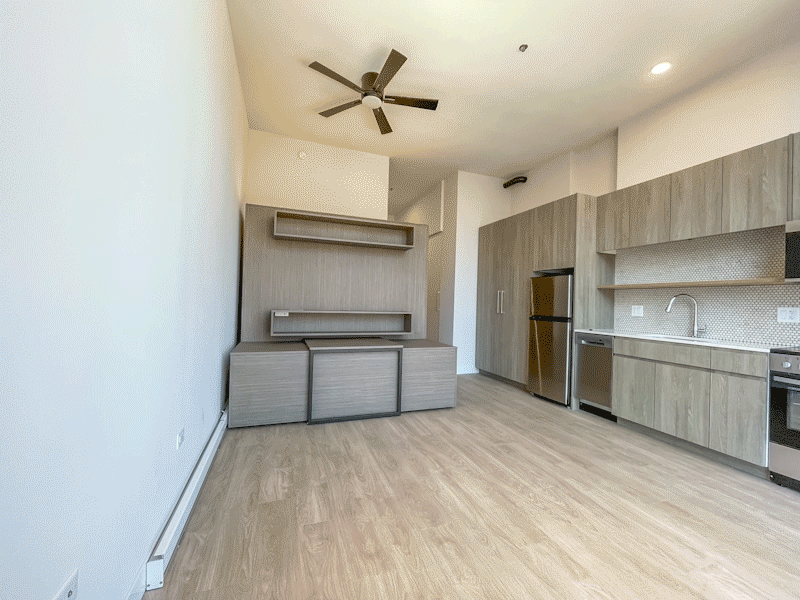
However, flex living isn't limited to just physical space. As remote work gives more renters the freedom to move about, they are considering alternatives to the traditional leasing model. For example, 56 percent of those who moved because of a switch to remote work said they would consider joining a rental housing membership program similar to a vacation club. That same group also indicated more interest than their non-mover counterparts in having the ability to list their rental homes on short-term rental sites like Airbnb or VRBO.
The pandemic has certainly changed the way we work; owners, developers and architects who recognize this new paradigm and respond with creative solutions will keep renters satisfied and the industry moving forward.
About the survey: Since its inception in 2013, the NMHC/Grace Hill Renter Preferences Survey Report has been the authoritative data source for apartment owners, managers, developers, industry suppliers, as well as architects, financial institutions and others seeking insights into the minds of renters. This biennial survey of residents at institutional-grade properties provides users with reliable data to make a variety of investment, development and operational decisions. Survey partners featured NMHC 50 companies including Greystar, AMLI Residential, and Windsor Communities.
Related Stories
Multifamily Housing | Aug 23, 2023
Constructing multifamily housing buildings to Passive House standards can be done at cost parity
All-electric multi-family Passive House projects can be built at the same cost or close to the same cost as conventionally designed buildings, according to a report by the Passive House Network. The report included a survey of 45 multi-family Passive House buildings in New York and Massachusetts in recent years.
Apartments | Aug 22, 2023
Key takeaways from RCLCO's 2023 apartment renter preferences study
Gregg Logan, Managing Director of real estate consulting firm RCLCO, reveals the highlights of RCLCO's new research study, “2023 Rental Consumer Preferences Report.” Logan speaks with BD+C's Robert Cassidy.
Adaptive Reuse | Aug 16, 2023
One of New York’s largest office-to-residential conversions kicks off soon
One of New York City’s largest office-to-residential conversions will soon be underway in lower Manhattan. 55 Broad Street, which served as the headquarters for Goldman Sachs from 1967 until 1983, will be reborn as a residence with 571 market rate apartments. The 30-story building will offer a wealth of amenities including a private club, wellness and fitness activities.
Sustainability | Aug 15, 2023
Carbon management platform offers free carbon emissions assessment for NYC buildings
nZero, developer of a real-time carbon accounting and management platform, is offering free carbon emissions assessments for buildings in New York City. The offer is intended to help building owners prepare for the city’s upcoming Local Law 97 reporting requirements and compliance. This law will soon assess monetary fines for buildings with emissions that are in non-compliance.
Sponsored | Multifamily Housing | Aug 15, 2023
Embracing Integrations: When Access Control Becomes Greater Than the Sum of Its Parts
Multifamily Housing | Aug 11, 2023
Hotels extend market reach with branded multifamily residences
The line separating hospitality and residential living keeps getting thinner. Multifamily developers are attracting renters and owners to their properties with hotel-like amenities and services. Post-COVID, more business travelers are building in extra days to their trips for leisure. Buildings that mix hotel rooms with for-sale or rental apartments are increasingly common.
MFPRO+ New Projects | Aug 10, 2023
Atlanta’s Old Fourth Ward gets a 21-story, 162-unit multifamily residential building
East of downtown Atlanta, a new residential building called Signal House will provide the city with 162 units ranging from one to three bedrooms. Located on the Atlanta BeltLine, a former railway corridor, the 21-story building is part of the latest phase of Ponce City Market, a onetime Sears building and now a mixed-use complex.
Senior Living Design | Aug 7, 2023
Putting 9 senior living market trends into perspective
Brad Perkins, FAIA, a veteran of more than four decades in the planning and design of senior living communities, looks at where the market is heading in the immediate future.
Multifamily Housing | Jul 31, 2023
6 multifamily housing projects win 2023 LEED Homes Awards
The 2023 LEED Homes Awards winners in the multifamily space represent green, LEED-certified buildings designed to provide clean indoor air and reduced energy consumption.
MFPRO+ New Projects | Jul 27, 2023
OMA, Beyer Blinder Belle design a pair of sculptural residential towers in Brooklyn
Eagle + West, composed of two sculptural residential towers with complementary shapes, have added 745 rental units to a post-industrial waterfront in Brooklyn, N.Y. Rising from a mixed-use podium on an expansive site, the towers include luxury penthouses on the top floors, numerous market rate rental units, and 30% of units designated for affordable housing.


